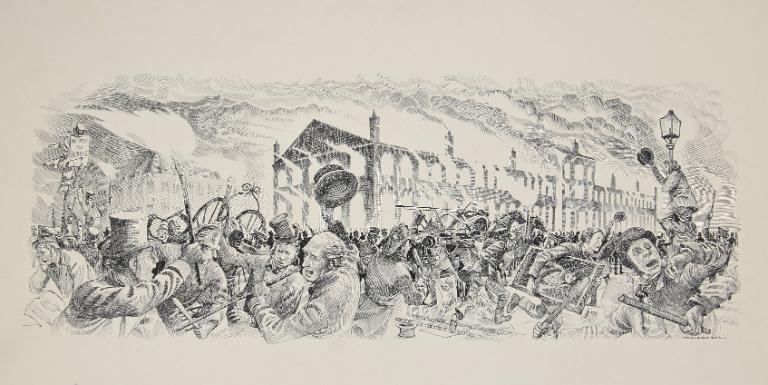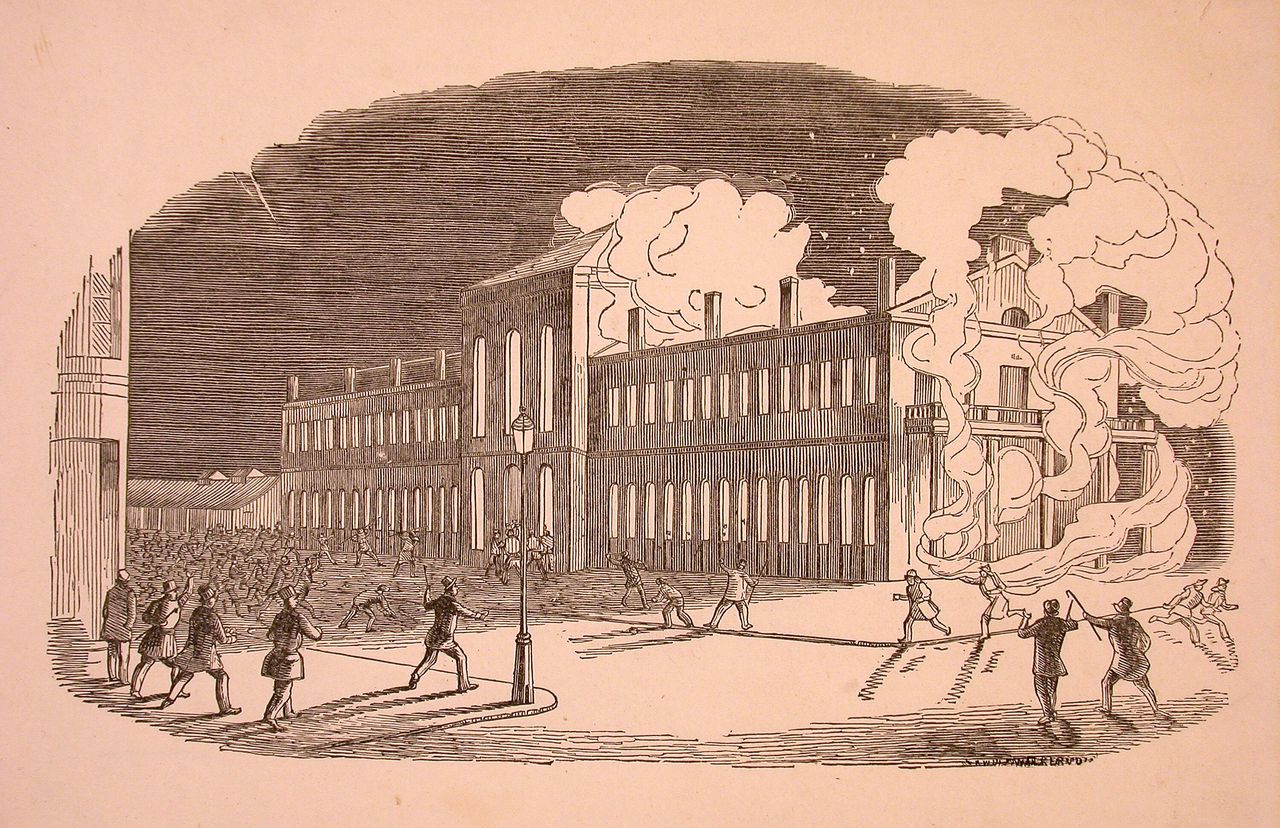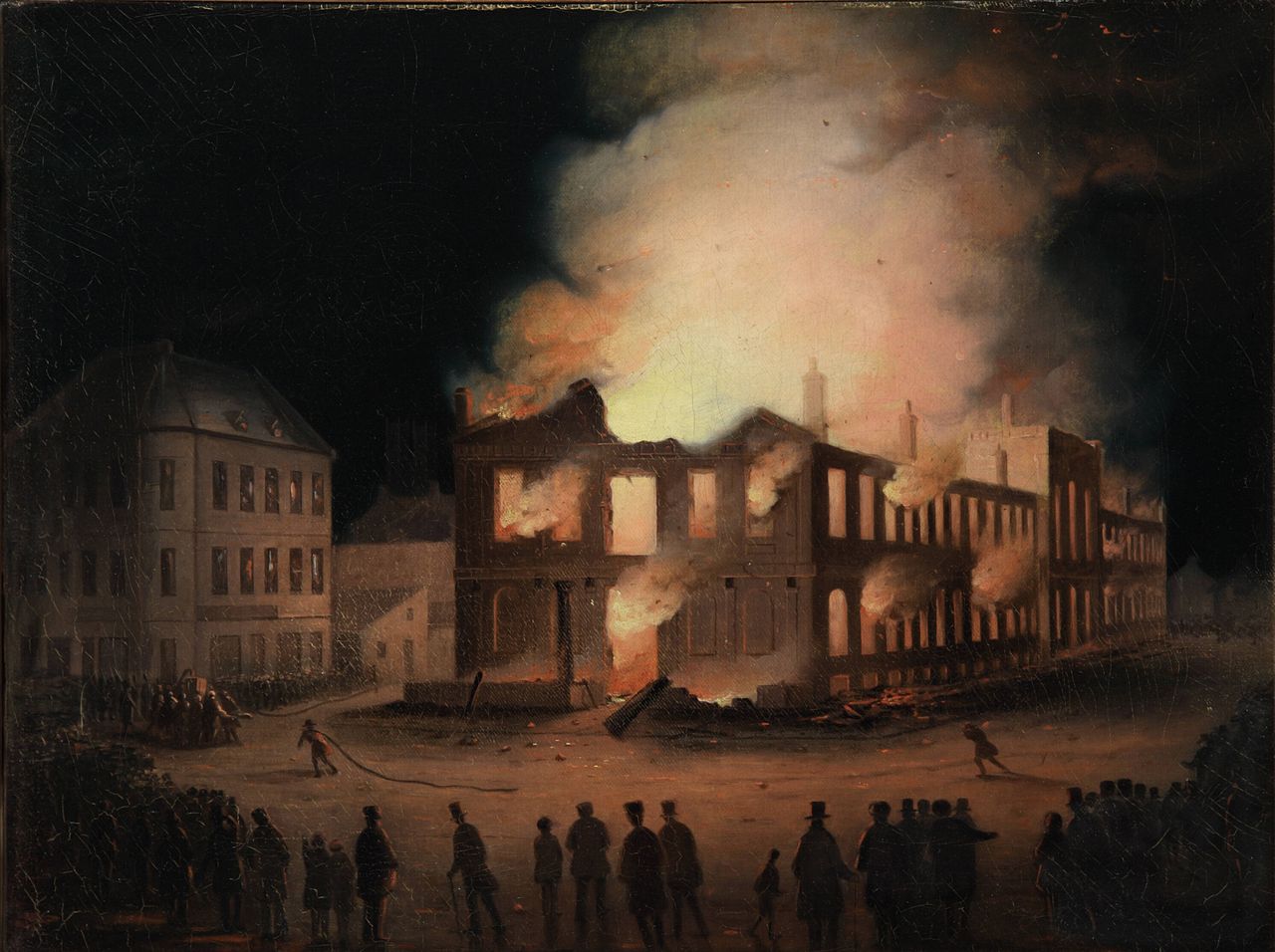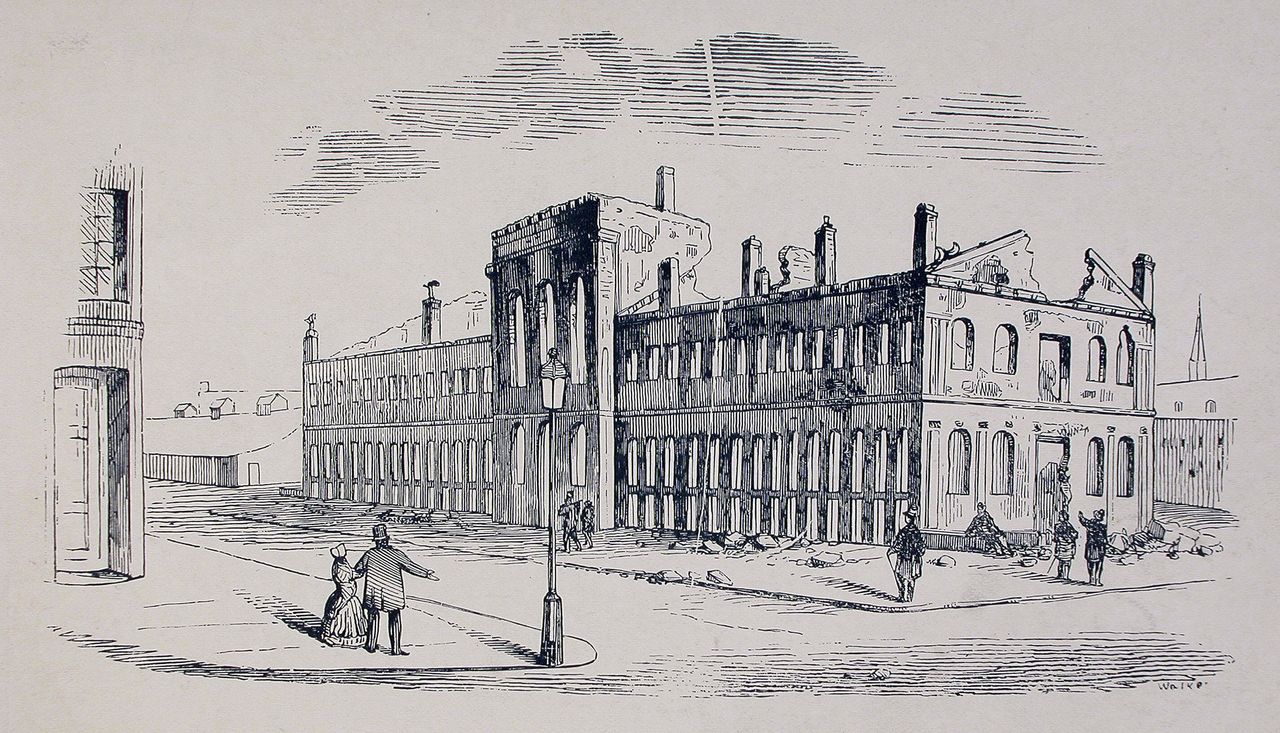The Montreal Parliament Fire of 1849
Robert Nugent Watts was elected to represent Drummond County for the first time in 1841, sitting as a Tory in the Parliament of the Legislature of the Province of Canada in Kingston, which was part of Canada-West (formerly known as Upper Canada). He was re-elected in 1844, the same year that Parliament was moved to Montreal in Canada-East (formerly Lower Canada). However, when he was re-elected in 1848, he found himself a member of the opposition, together with other Tories. It was the Reformers, led in large part by French Canadians such as Louis-Hippolyte LaFontaine, who now held a parliamentary majority.
The new government wished to right the wrongs done to French Canadians since the Act of Union of 1841. Various measures were adopted, including ministerial responsibility, recognition of the language rights of French speakers, and amnesty for those who had taken part in the uprisings of 1837–1838. In the difficult economic context experienced by members of the English-speaking merchant class at the time, these resolutions were a source of irritation for English Canadians. It was the passing of the Compensation Act, designed to assist individuals whose property had been damaged or destroyed during the rebellions, that sparked a real crisis in the capital of Montreal, where there were both English and French speakers.
Encouraged by the Tory press, a large number of protesters opposed to the law’s adoption by Governor Elgin swarmed Parliament Square on April 25, 1849. Robert Nugent Watts was present in Parliament that day, and the letter he wrote to his wife Charlotte bears witness to the day’s singular events. When Elgin and his staff left the building at the end of the day to escape the angry crowd, they were pelted with eggs and apples that had been procured by the demonstrators at a nearby market. Later in the evening, with Watts still in the Chamber of Commons, things took a dramatic turn when the protesters began to throw stones through the windows. The members of Parliament locked the doors and hid in a corridor. These efforts were not enough to stop the crowd from breaking into the building. A fire broke out, and Watts was forced to find safety elsewhere. The deputy for Drummond finally found a staircase which led to a door left open by the rioters, and he escaped into the street with some of his colleagues. Watts realized that he had left some important papers back in his office. Since it seemed that the fire had not reached the office, he turned back. He found it hard going because the fire was spreading, but he managed to retrieve his papers and get out again without being trapped by the flames. As the building was reduced to ashes, it was decided a few months later to move the seat of government to Toronto, where it remained until 1852 when it was moved to Quebec City.





